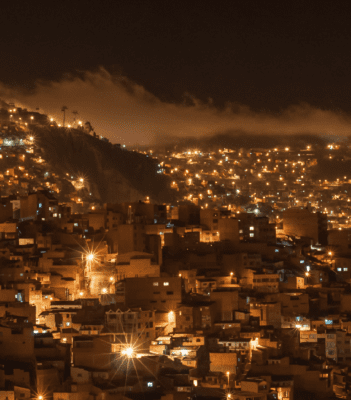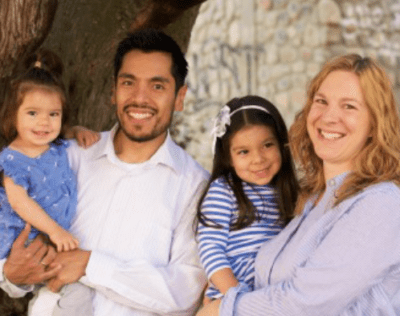Suffering Over the Long Haul
One afternoon a few months ago, I had an opportunity to jump into a quick battle and fight suffering head-on.
I was running errands with my daughters when a teenager with a duffle bag swung over his back stopped me and asked if I could spare some change for food.
His name was Jesús. Sometimes God isn’t too subtle when He chooses to wrap Himself up in the guise of his suffering children. Jesús was one of millions of Venezuelan refugees and economic migrants who are flooding into any South American country that will take them. For a month he had been walking, hitch-hiking, and working odd jobs with his brother and two cousins (one of them pregnant) through Colombia, Ecuador, Peru, and finally Bolivia, escaping the violence and economic devastation at home and clinging to the promise of possible work at a mechanic’s shop owned by a distant uncle in Argentina.
I found it way too easy to sweep aside my extensive to-do list and invite all four of them over for dinner. It was their first day in Bolivia and they had nowhere to stay, so we spent all evening making calls to find them shelter, packing them bag lunches for the next day, and drawing them maps to places that might be able to help.
The whole evening was fun, almost festive, and quite exciting. It’s a dizzying shot of white savior adrenaline to be able to provide food, water, and shelter in a couple short hours, then fall asleep feeling like the world is a little better because of me.

Lights illuminate the night landscape of El Alto, Bolivia near our community center.
See, while I’ve thrown my life into relieving the suffering of women and children trapped in prostitution, the daily reality of staying in the draining fight for each woman’s slow transformation doesn’t have the glitz and glam of a quick fix for my Venezuelan refugee friends.
And while there is nothing wrong with providing the instant relief of suffering that Jesus calls for in Matthew 25, I must stay conscious of how easy and thrilling it is to ignore my lengthy and monotonous responsibilities to do it. I have an amazing job, helping run the social enterprise SutiSana that offers employment and opportunity to sexually exploited women who would never find that elsewhere. There is absolutely nothing I would rather do with my life. And yet, the daily grind and details of making this work possible can become, quite simply, boring.
The hardest part of suffering is staying in it over the long haul when it becomes mundane. Like sharing in the suffering of my friend trapped in an emotionally abusive marriage, no matter how many months or years it takes her to confront it. Or sharing in the suffering of another friend going through a long, excruciating divorce.
Staying and sharing in the suffering demands stillness over action, which is paradoxically exhausting. It doesn’t boost my ego. It doesn’t help me sleep well at night. It doesn’t usually lend itself to exciting stories and clean, happy endings. But sharing in suffering over the long haul is what I believe the apostle Paul is talking about when he says to the church in Colossi, “I rejoice in what I am suffering for you, and I fill up in my flesh what is still lacking in regard to Christ’s afflictions, for the sake of his body, which is the church.” (Colossians 1:24 NIV)
These days, I still try to help any Venezuelan refugees that continue to flood through my neighborhood. But I’m not quitting my day job. I’m committed to staying in the two-steps forward, one-step-back journey of every woman employed by SutiSana over the long haul. That’s the fight I’m called to daily.
 ABOUT CARA
ABOUT CARA
Cara grew up as a daughter of missionaries in Ethiopia. While attending John Brown University, she began to fully pursue Christ and was first exposed to WMF. Later, through an internship in Bolivia, she was discipled into a deeper understanding of God’s heart for the poor and a love for women caught in prostitution. After serving for two years in El Alto, Bolivia as the Servant Team Coordinator, Cara met and fell in love with Mache. They were married in 2010, the same year that Cara co-founded SutiSana: WMF Bolivia’s social enterprise that offers dignified employment to survivors of prostitution. Since 2010, Cara has thrown herself into the growth and development of SutiSana. Mache and Cara now have two daughters, Ariana and Zoe
Connect with Cara: cara.contreras@wordmadeflesh.org
